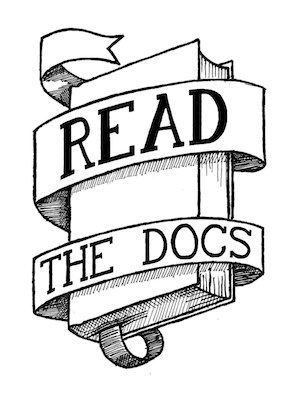Making a Django Uber-Community¶
My workload at work is about to get a lot less critical and time consuming, so I was looking for a project to start on. I am really interested in the social aspects of the web, and below I will outline an idea that I think will be my next project.
At Djangocon there was talk by Adrian and Jacob in their Future of Django talk about having a common identity for a person across all Django sites. I think that this would be a really interesting thing to work on, and make all of our Django sites much more approachable. So in this post I’m going to lay out what I think this would look like, how it would likely be done, and then hopefully get some other people that are interested in it to help me brainstorm. There is a ticket open about it currently.
Information Aggregation¶
So first off, we need to figure out what this is going to look like. I imagine there being a central site that would organize all of our Django related activity. The best option at the moment is Django People, because it already has a lot of that data. I talked to Simon at Djangocon about his plans for Django People v2, and it sounds like this is the direction he was wanting to go. So Django People could serve as a personal aggregator for people. I view Django People as kind of the “Profile Page” of a person in the realm of Django. The main page could also function as a kind of “Life stream” of the project, so people could see what is going on Right now. I think a killer feature would be to have people be able to join into groups, based on projects, and have a life stream for that project. This would give people an idea of how active a project is, how many people use and develop it, and other interesting information that weighs into whether we decide to use a project. Simon in his scary brilliant way already has most of this information on the site. We just need to build a way to pull information that we care about in, and display it well.
Then we need some kind of large aggregator of content from all of the people in Django. I think that This week in Django is the place to do that. The Django Community Aggregator on the official Django site is lacking. I think this functionality could be pushed off to TWID. I think that this aggregation site would replace the aggregation of blog posts. It would hopefully support tagging, syndicated comments, language preferences, and other thing. I have talked to the TWID guys about doing this, and they said it sounded like a great idea.
I view these 2 sites as the foundation for what I hope to build. Then the question is, what other sites do we include in this ‘django information stream’? I’m going to list the ones that I think have relevant information, and I would love to have suggestions for other sites that would provide a service.
Sites to include¶
Django Plugables - This site is a directory of Django reusable apps. It is a great resource, and better than searching Google Code for ‘django-’. Now that projects are getting hosted on Github, Bitbucket, Google Code, Pypi, and others, this aggregator of projects is useful. We could bring in data about what projects a person owns. The site currently supports handling commits, and it would be really neat to have able to pull in all of the commits to a project, as that is the big thing that this is all about, code.
Django Snippets - This is a great site for Django. It allows people to submit snippets of useful code for others. We could bring in data about their posts and tags.
Django Sites - This is a site that lists all of the sites that are made in django. We could pull in the Django Sites that people have made. We could also use this data to determine what host each site uses, and have a tally of hosts of Django web apps.
Django Gigs - The place to look for Django work. Pull in people looking for work, and people with job postings.
Other non-django sites - We could also pull in data from popular sites about Django. Think the Django popular section of Delicious, Reddit Django subsection, Twitter Search for Django, etc.
Ponies¶
Luckily in this day and age, most of the data we want is available in RSS feeds. For other things, there are APIs available. Luckily, most of the owners of the sites are members of the community, and I’m hoping they would be willing to have the information aggregated. I don’t think that there is much of a technical challenge behind this, it is mostly just social and getting people to push their data in suitable formats.
I think it would be interesting to talk about microformats, and other ways of having the data on the public sites be available to be pulled. I think it would also be interesting to have OpenID enabled on all of the sites (Django people already has it). This would allow you to have a kind of floating profile. If a layer was built on top of this (white listed information providers?), you could edit your information on one site, and it would be sent to all the others in the inner circle.
This is mainly just a braindump, but I am willing to take the lead on this project and get people talking. The code would be released open source and I think we could even make it into a series of reusable apps (and maybe APIs) that could be extended to other communities. I think we could create a best of breed/proof of concept implementation of a community linked shared profile.
Using OAuth to share the information across the sites, and as authentication for that and more is also another thing that I think would be possible. I haven’t implemented anything like this before, so I don’t know if it’s the correct technology.
There is a lot of possibility for this project, and I am really excited to get started on it. This is just mainly a feeler to see who would be interested in participating, and to get the ball rolling. I’d love to hear people’s comments and criticisms.


